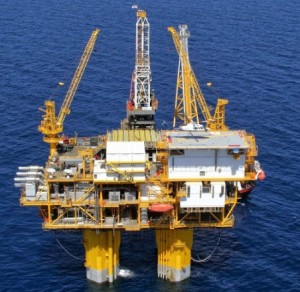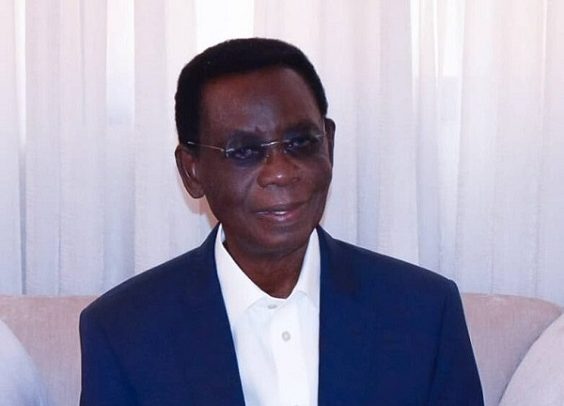

 Ghana’s petroleum revenue rose significantly in 2024, reaching its second-highest annual level despite a continued decline in crude oil production, according to the Public Interest and Accountability Committee (PIAC).
Ghana’s petroleum revenue rose significantly in 2024, reaching its second-highest annual level despite a continued decline in crude oil production, according to the Public Interest and Accountability Committee (PIAC).
The 2024 Annual Report, presented by Mr. Samuel Bekoe, a PIAC member representing Think Tanks, during the Eastern Zonal Media Engagement in Koforidua, offers a comprehensive analysis of petroleum production, revenue, and utilisation under the Petroleum Revenue Management Act (PRMA).
Ghana earned $1.36 billion from petroleum activities in 2024, a 27.8 percent increase from the $1.06 billion recorded in 2023.
This marks the second-highest annual petroleum revenue since oil production began in 2010, with 2022 being the highest at $1.42 billion.
The increase was attributed primarily to favourable global oil prices, despite a marginal year-on-year decline in crude oil output.
Total production fell to 48.24 million barrels, continuing a five-year downward trend from a peak of 71.44 million barrels in 2019.
“The revenue performance reflects the resilience of Ghana’s petroleum sector in the face of declining output,” Mr. Bekoe noted.
On Gas Production and Utilisation, he said raw gas production reached 280,511.03 MMSCF in 2024, with the SGN field contributing nearly half.
Utilisation data showed that 41.3 percent of the gas was exported, 44.3 per cent injected, 4.2 per cent used as fuel, and 10.2 per cent flared.
Cumulatively, Ghana has produced over 1.77 trillion MMSCF of commercial raw gas since 2014.
Further, petroleum revenues were derived from: Carried and Participating Interest (CAPI) $603.5 million; Corporate Income Tax (CIT): $502.87 million; Royalties: $239.98 million; and other income streams including surface rentals and PHF interest.
The Petroleum Holding Fund (PHF) distributed revenues were as follows: GNPC: $280.6 million; Annual Budget Funding Amount (ABFA): $493.3 million; Ghana Stabilisation Fund (GSF): $409 million; Ghana Heritage Fund (GHF): $175.3 million.
Since 2011, cumulative petroleum receipts have reached $11.21 billion, with $11.2 billion distributed through the PHF.
The report also indicated the ABFA was allocated to four priority areas approved by Parliament for 2023–2025: Agriculture including Fisheries; Education and Health Infrastructure; Roads, Rail, and Other Critical Infrastructure; Industrialisation.
However, no funds were allocated to Industrialisation in 2024, raising concerns about adherence to the PRMA’s prioritisation framework.
In the Eastern Region, notable ABFA-funded projects included: GH¢7 million for road construction in Atekyem, Koforidua; GH¢2.6 million for a CHPS compound in Asuogyaman; GH¢1 million for bitumen surfacing of feeder roads; GH¢600,000 for a rural market and boreholes in Upper Manya Krobo.
The report highlighted several critical issues such as no new petroleum agreements were signed in 2024, continuing a five-year trend.
GNPC Explorco failed to remit $145.7 million from liftings into the PHF, bringing cumulative unpaid revenues to nearly $489 million.
Surface rental arrears owed by international oil companies stood at $2.89 million, with 60 per cent owed by companies whose agreements were terminated in 2021.
Ghana forfeited 1,186.81 MMSCF of Make-Up Gas (MUG) from the SGN field.
The TEN field recorded the lowest output but incurred the highest development costs, with state contributions rising by over 400 percent.
PIAC made several recommendations including parliament should enforce compliance with Regulation 8 of L.I. 2381, particularly regarding the GSF cap, which was retained at $100 million instead of the required $517.43 million.
GNPC and GNPC Explorco should be insulated from loan obligations unrelated to their core mandates.
The Ministry of Energy should intensify efforts to attract upstream investments.
The Ghana Revenue Authority, Petroleum Commission, and Bank of Ghana should collaborate to recover outstanding surface rentals.
“The government must ensure that industrialisation is not just a stated priority but a funded one,” PIAC emphasized.
Source: GNA
The post Ghana oil revenue up despite continuous production decline appeared first on Ghana Business News.
Read Full Story

























Facebook
Twitter
Pinterest
Instagram
Google+
YouTube
LinkedIn
RSS